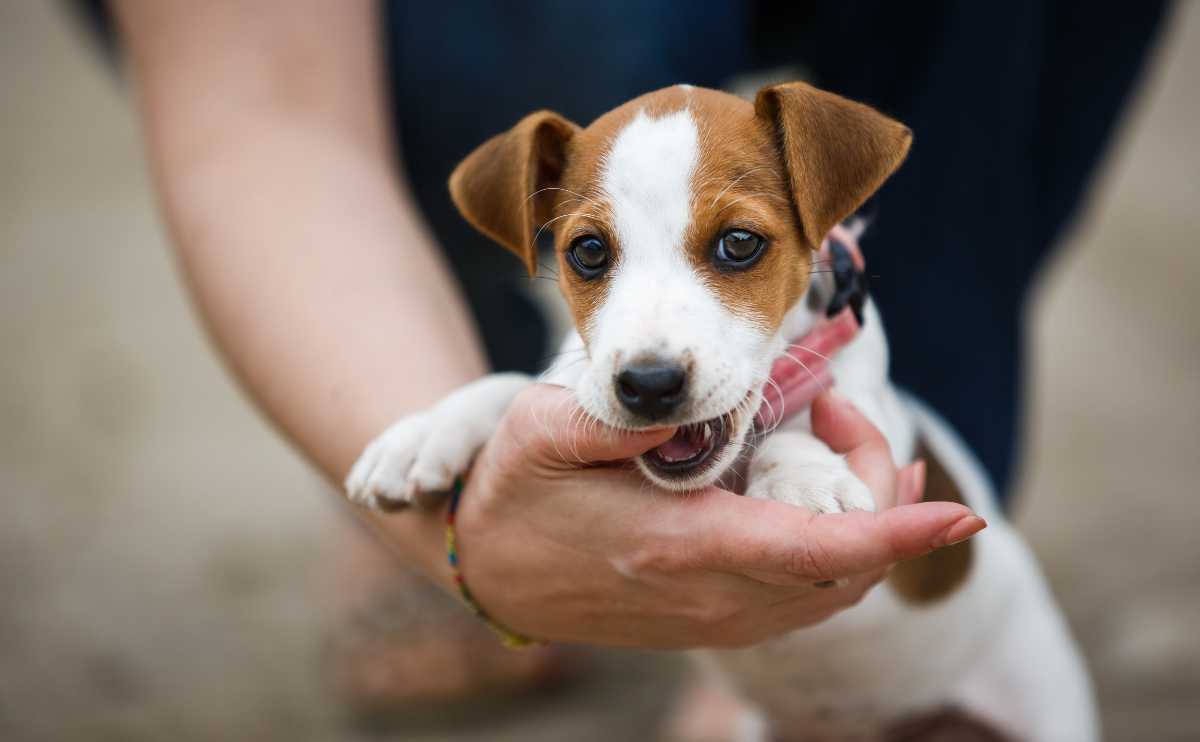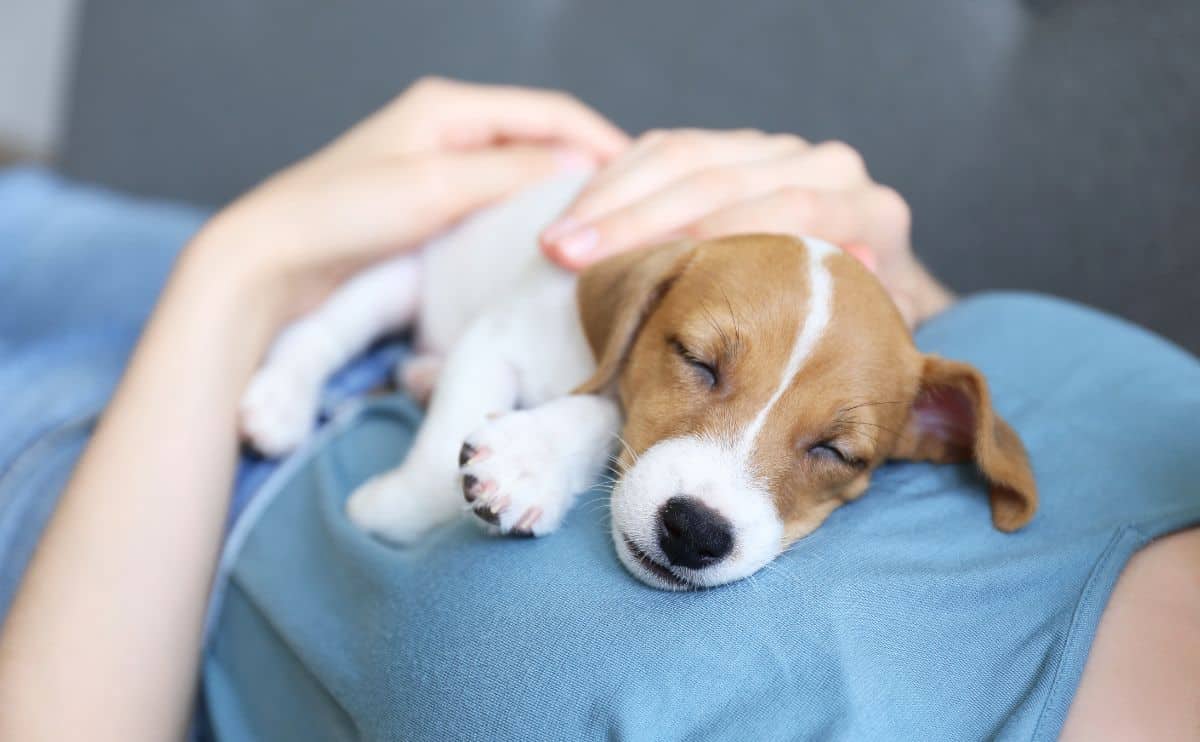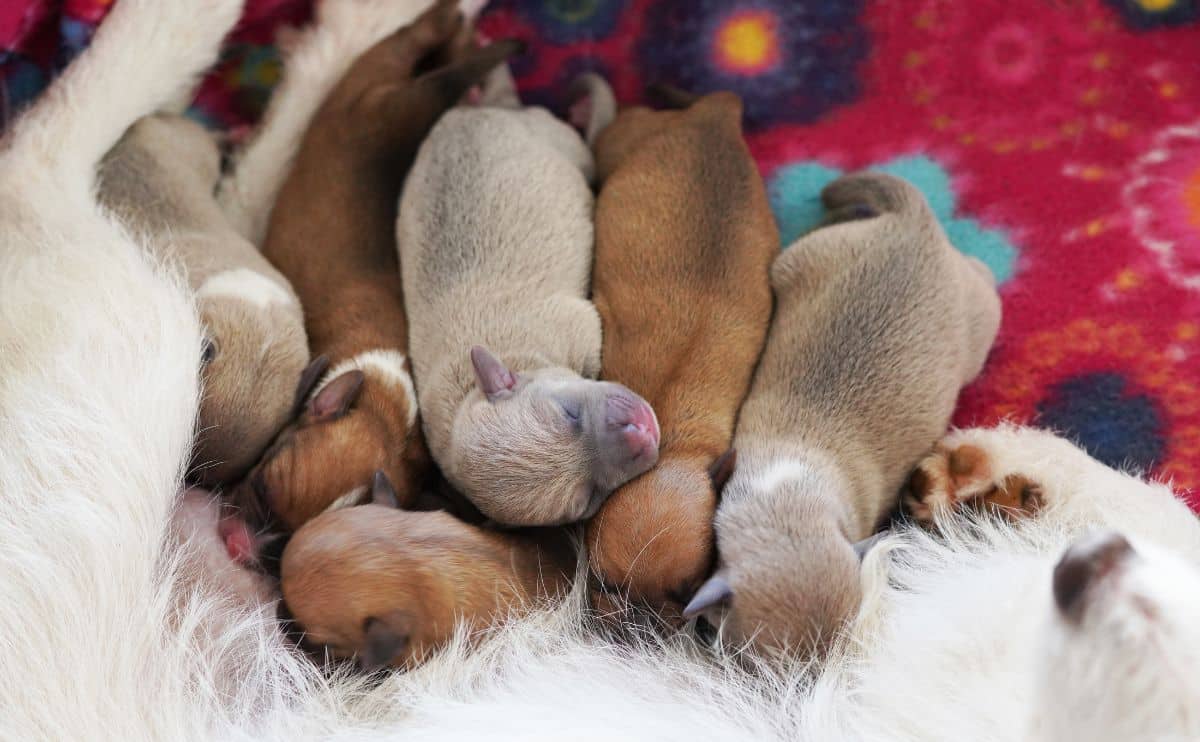When you purchase through links on our site, we may earn a commission. Here’s how it works.

You might think it’s wise to wait until your very young puppy gets a little older to start socializing them. Don’t wait! You have a pretty small window of opportunity to socialize your puppy correctly, and ideally, you should start when they are only three weeks old. So, where do you start? What do you need to know? We’ll answer all your questions about how to socialize your puppy so he grows up to be a secure social butterfly.
When Should I Start Socializing My Puppy?
The sooner, the better! Puppies develop quickly, particularly when it comes to behavior. They’re most receptive to new experiences between the ages of three and 12 weeks of age, also called the socialization window or phase. After about four months, it becomes much more challenging to introduce puppies to new situations.
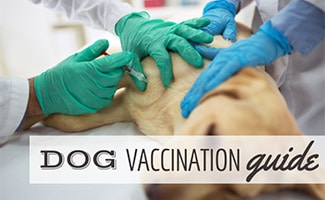
How do you socialize your puppy when they are not fully vaccinated yet to protect against disease and parasites? With caution, say experts. Most puppies don’t get all of their vaccines until at least 16 weeks old, so you have to be careful when you’re introducing your pup to older dogs and outdoor experiences.
Although puppies can contract diseases by picking up small amounts of excrement left behind by sick dogs in public places, the American Veterinary Medical Association (AVMA) states that dog behavior problems from lack of puppy socialization are of greater concern than the chance of contracting a disease in a public place.
Why Is It Important?
The last thing you want is for your pup to end up scared of their own shadow their whole life. The world can be a series of overwhelming and frightening experiences for an unsocialized dog.
Socializing a puppy is much more than just introducing them to people and other dogs. It also involves getting your puppy comfortable with new sights, sounds, smells, other animals, and new environments. If not properly socialized, dogs tend to face new people, other pets, loud noises, and other sensory triggers with fear, anxiety, and even aggression. But if you’ve exposed your puppy to a wide variety of situations, they are much more likely to grow into a secure, happy, and relaxed family pet.
What’s The Best Way To Socialize Your Puppy?
There are many ways to expose your puppy to new people and dogs while minimizing the risks of harming any party.
How To Socialize A Puppy With People
Invite people over to your home – Getting your dog used to accepting visitors into its home is crucial to a healthy demeanor. This applies to both visitors and family members. Spending too much time with just a few household members can lead to overprotectiveness and even separation anxiety when you leave. It is also important to ask guests to remove their shoes before entering your house. This will prevent any exposure to potentially harmful particles on shoes (puppies may not have a fully developed immune system yet).
- Expose your puppy to different people – It’s best to introduce your puppy to a variety of people every day, if possible. Choose family and friends of different genders, ages, and races so your puppy gets used to the society they’ll encounter in their world.
- Choose people who know how to interact with puppies – A huge part of socializing a puppy is getting them comfortable being handled and cuddled by several different people. Still, it would help if you exposed them to people who understand careful dog handling.
How To Socialize Them With Other Dogs
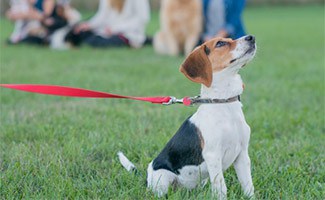
Dogs are social animals, and if you’ve owned a dog before, you know how much they gravitate to other dogs. As part of the socialization process. It’s vital to introduce your young puppy to other dogs during their formative time so they don’t develop anxious, fearful, or aggressive behavior toward their fellow canines.
- Join puppy socialization classes – Dog behaviorists strongly recommend enrolling in a puppy training class. These classes are a safer choice than taking your puppy to a dog park because there’s less risk that the other puppies in the class carry diseases. Your pup gets the socialization needed. They’ll also pick up some crucial behavioral training at the same time. You might also try online dog training as an at-home option, especially as they get a little older.
- Make doggy play dates with trusted dogs – Visit your dog owner friends (or invite them over), but only if you know their dogs are healthy and will play well with young puppies. This can be a great way to introduce your puppy to older dogs as part of the socialization process.
- What about dog parks? Although some experts say it’s a great way to socialize your puppy, you’re taking a considerable risk with dogs you don’t know. It’s best to wait until your puppy is a bit older and has all their vaccinations before venturing to the dog park.
Puppyhood Is The Best Time To Consider Pet Insurance

As a puppy, your dog has probably not shown any significant health concerns at their young age. Since pet insurance companies do not cover pre-existing conditions, the younger your dog is when you sign up, the better coverage you will likely receive throughout their lifetime. Further, pet insurance can help support you financially during the unpredictable puppy years when dogs are more likely to chew on things they shouldn’t and run into dangerous situations. Check out our pet insurance 101 guide to learn more and determine whether pet insurance is worth it for your puppy.
What Are The Don’ts?

Not all puppy socialization is productive. Depending on their personality, some puppies will be more skittish in new situations, so be careful to watch your pup’s cues. Never force your puppy into an environment when they’re resisting or showing extreme fear. Otherwise, you could end up creating fear for life. Some other don’ts include the following.
- Don’t bring your puppy into contact with dogs who seem sick, dogs you don’t know, or dogs you know aren’t fully vaccinated. For these reasons, you may want to avoid dog parks until they are older.
- Don’t over-socialize. Puppies need a lot of sleep and may become overwhelmed with too much at once, leading to bad behavior and even nipping or biting. Limit the time of exposure.
- Don’t reward your puppy if he’s showing fear. This is a tough one because we want to soothe our babies. But you don’t want your puppy to end up thinking fearful behavior is worthy of praise. He needs to work through his apprehension.
- Car rides are often a very scary experience for puppies. Some may experience car sickness. It is not something they are naturally used to, so they require some encouragement and training. Training your puppy young to tolerate and behave on car rides is worthwhile as it opens up the ability to take your dog with you on many more adventures. Puppies will need to learn to wear seat belts, and owners can purchase dog car seats.
Video: Tips For Socializing Your Puppy
Check out this entertaining video we made with some additional tips (and a slew of adorable puppies to boot)!
A Final Reminder: Don’t Wait To Start!
It’s your responsibility as a new puppy parent to steer your pup in the right direction and make sure he or she grows up to be a content, well-behaved, and anxiety-free dog. Don’t miss your small window of opportunity during your puppy’s formative time. Once this window is gone, you have missed your best chance.
Want more puppy advice? Check out our new puppy checklist, a puppy housebreaking guide, an expected puppy vaccine schedule, and instructions on how to puppy-proof your home. Also, learn more about puppies breathing quickly, deworming, and advice on leash training.
Tagged With: Invite people over to your home – Getting your dog used to accepting visitors into its home is crucial to a healthy demeanor. This applies to both visitors and family members. Spending too much time with just a few household members can lead to overprotectiveness and even separation anxiety when you leave. It is also important to ask guests to remove their shoes before entering your house. This will prevent any exposure to potentially harmful particles on shoes (puppies may not have a fully developed immune system yet).
Invite people over to your home – Getting your dog used to accepting visitors into its home is crucial to a healthy demeanor. This applies to both visitors and family members. Spending too much time with just a few household members can lead to overprotectiveness and even separation anxiety when you leave. It is also important to ask guests to remove their shoes before entering your house. This will prevent any exposure to potentially harmful particles on shoes (puppies may not have a fully developed immune system yet).